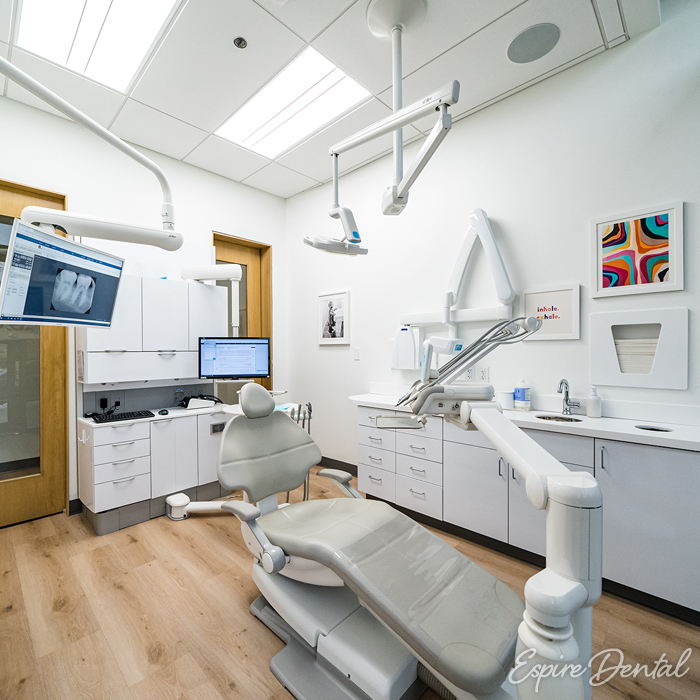
Knowing when to get your wisdom teeth removed is essential to both your dental health and your general health. Learn what signs to look out for.
In the thousands of years since humans first developed wisdom teeth as an evolutionary response to eating raw meats, vegetables, and roots, these molars have become little more than a nuisance. By the time they come in (usually between the ages of 17 and 21, known as the “wisdom years”), most people have gotten perfectly accustomed to living with the 28 teeth they already have in their mouths — meaning they have no need for four more teeth at the very back of their jaw.
Unlike most other teeth, wisdom teeth are frequently extracted. Not only do they not serve a particular positive purpose (humans are no longer eating the tough foods the teeth were designed for, after all), wisdom teeth can cause a variety of negative side effects from basic discomfort and pain, to serious inflammation, jaw stiffness, and more. Even when wisdom teeth aren’t causing problems in the moment, dentists will often remove them to prevent future problems.
7 Signs You May Need Your Wisdom Teeth Removed
Of course, not everyone wants to undergo surgery before it is strictly necessary. If you aren’t experiencing any side effects from the teeth, it may be perfectly safe for you to keep them in. However, if you do still have your wisdom teeth, you need to be on the alert for any signs that may indicate that problems are developing. Here are 7 signs you may need your wisdom teeth removed:
- Pain and irritation
As your wisdom teeth grow in, you may experience aches and pains at the back of your mouth. If that occurs, it’s important to contact a dentist who will determine whether or not the wisdom teeth are the cause of the pain and whether they believe the pain may correct itself over time, or if extraction is necessary. Many common wisdom teeth issues that demand extraction, including crooked or impacted growth, are first indicated by pain so it’s important to see a dentist as soon as you notice the issue.
- Difficulty eating
Because your wisdom teeth are so far back and so difficult to clean, it’s common for food to get stuck in between the gums and the top of the teeth, leading to pain when eating. A dentist can help you find the right products to address the issue.
- Formation of a cyst around the tooth
If a sac filled with fluid (called a cyst) forms next to your wisdom tooth, you need to see a dentist immediately. If left untreated, the cyst can destroy bones, roots, and surrounding structures.
- The teeth are crooked
More than any other molar, wisdom teeth often grow crooked. That can cause your other teeth to shift, potentially damaging those teeth and alignment. When your wisdom teeth come in crooked, it’s essential to extract them before they can cause that secondary damage.
- Cavities
Because they’re so far back, wisdom teeth can provide a lot of surfaces for bacteria to hide. If your gums become irritated, pockets can develop between your teeth and cause bacteria to grow, promoting the development of cavities that lead to infection.
- Inflamed gums
Sometimes when your wisdom teeth start coming in, a flap of gum tissue that resides next to the tooth is created. That gum tissue can trap small particles of food and bacteria. The tissue around your teeth can then become hard and inflamed in a condition called pericoronitis. This condition can even occur while your wisdom teeth are under your gums, so if you sense any inflammation in the area — even if you can’t see the teeth yet — it’s critical that you go to a dentist.
- Signs of impacted wisdom teeth
When wisdom teeth are “impacted” that means there isn’t enough space for them to emerge from the gums and develop normally. Impacted wisdom teeth may partially emerge or they may not emerge at all, but either way they can cause serious symptoms that indicate a need for prompt extraction. Signs to watch out for include: swollen, tender, or bleeding gums; jaw pain; swelling or stiffness in the jaw; difficulty opening your mouth; and bad breath.
The Benefits of Removing Your Wisdom Teeth
There are many benefits to removing your wisdom teeth. In addition to eliminating the risk of serious infection and inflammation that could have major repercussions for both your oral and general health, extracting your wisdom teeth can reduce pain. It can also seriously improve your dental hygiene. Even if you don’t have other symptoms, the difficult placement of your wisdom teeth makes them very hard to clean, which can lead to a variety of health issues.
Even better, once you remove your wisdom teeth, you no longer need to worry about developing any of the serious complications they can bring. That peace of mind is priceless.
Remove Your Wisdom Teeth Today
If you’re seeing any of these signs — or if you’re simply interested in learning more about your wisdom teeth and whether extraction may be right for you — you should schedule an appointment at Espire Dental today. Our qualified oral surgeon can help you determine the right path forward for your oral health and create a plan that fits your needs. Contact us to schedule an appointment today!


